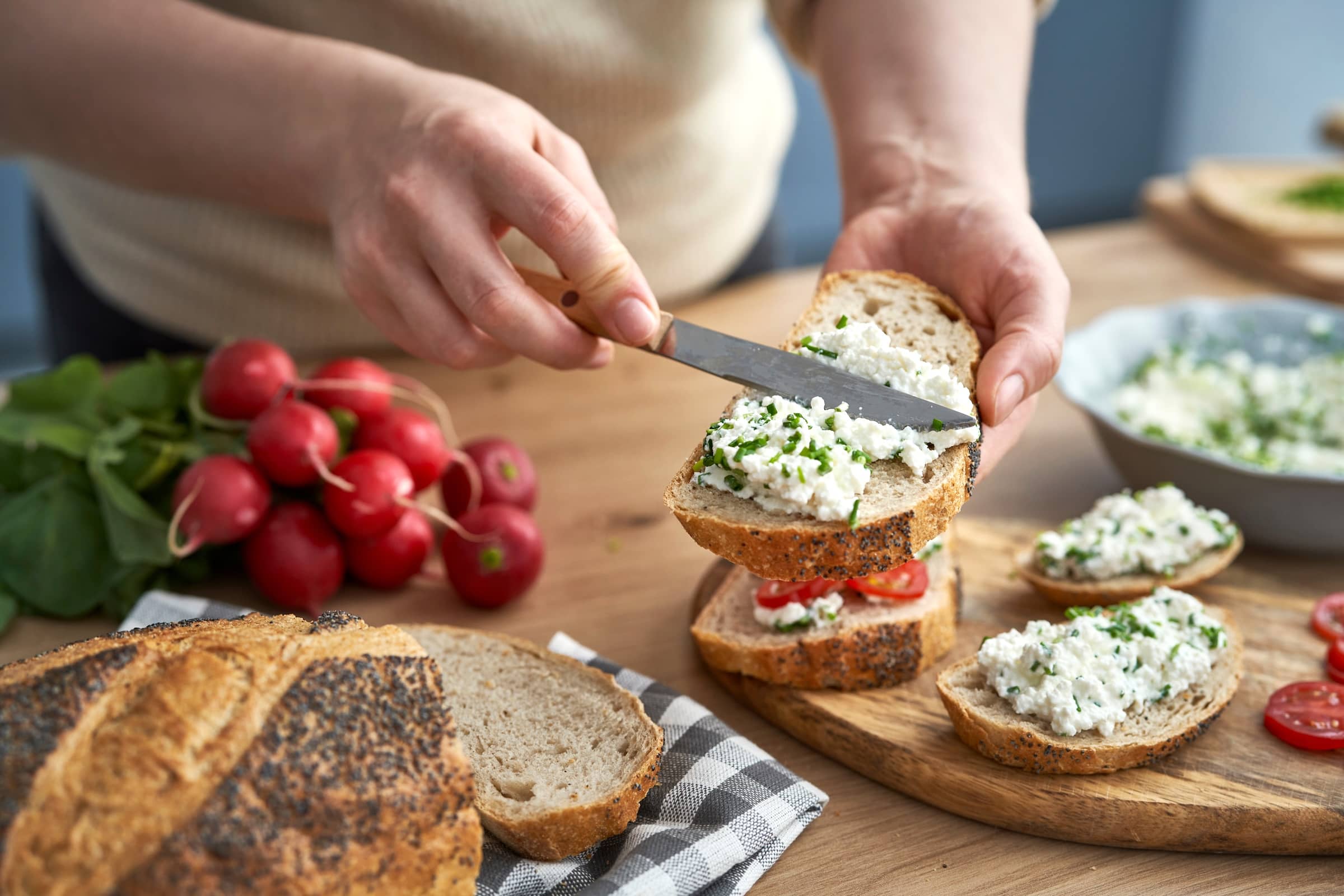According to fresh research from Lingo by Abbott, 73% of Brits are now choosing food based on how it makes them feel, with 46% saying appearance still matters—but not at the expense of wellness. That shift has ushered in a return to nourishing, versatile ingredients. Cue the renaissance of cottage cheese—the retro food hero making a strong case for modern relevance.
“It’s not just a high-protein option,” says Sophie Bertrand, Resident Nutritionist at Lingo. “Cottage cheese is not only rich in protein but has high levels of casein which is a slow-digesting protein that will keep you fuller for longer after meals.”
That slow-release casein is the real star. Unlike a quick protein bar that spikes and fades, cottage cheese provides lasting satiety—ideal for keeping mid-morning hunger pangs or late-night cravings at bay.
“Protein is imperative for muscle maintenance, growth and repair,” Sophie adds. “So adding cottage cheese into your diet is a great way to help meet your daily protein recommended intake (approximately 45g for women and 55g for men).”
Why Cottage Cheese Deserves a Spot on Your Shopping List
Nutritionally, it’s a powerhouse. Each spoonful serves up more than just protein. It’s rich in calcium—key for bone and dental health—and packed with B vitamins that support everything from energy levels to nerve function.
“It also contains live cultures which are beneficial for gut bacteria and support good gut health,” Sophie notes.
And let’s not forget its affordability and versatility. Whether you’re lifting weights, chasing toddlers, or navigating a 9-to-5 grind, cottage cheese is a low-fuss, high-reward food that fits any lifestyle.
From AM to PM: Easy Ways to Eat Cottage Cheese
One of the most underrated perks? It tastes better than you remember—and it’s ridiculously easy to integrate into your day.
For breakfast, Sophie suggests pairing it with fresh fruit and a drizzle of honey, or blending it into your morning smoothie for an extra dose of creaminess. Come lunchtime, spread it on rye crackers with tomatoes and a grind of black pepper. If you’re feeling fancy, whip it into a herby dip for your mid-afternoon veg sticks.
And for dessert? Don’t be surprised to find cottage cheese starring in your sweet treats. It blends beautifully into protein-rich puddings and cheesecake recipes that feel indulgent without blowing your goals.
🥞 High-Protein Buckwheat Pancakes
Serves: 2 | Protein: 24g per serving
Ingredients:
-
1 cup cottage cheese
-
2 eggs
-
½ cup buckwheat flour
-
1 tsp baking powder
-
Pinch of salt
-
1 tbsp olive oil (for cooking)
Suggested Toppings:
-
120g plain Greek yoghurt
-
120g fresh berries
Method:
-
In a blender, combine cottage cheese and eggs until smooth.
-
In a bowl, mix buckwheat flour, baking powder, and salt.
-
Fold wet mixture into dry ingredients until just combined.
-
Heat olive oil in a non-stick pan over medium heat.
-
Pour approx. 2 tbsp of batter per pancake. Cook 1–2 minutes until bubbles form.
-
Flip and cook for another 1–2 minutes until golden brown.
-
Repeat and serve warm with your chosen toppings.
🍫 High-Protein Chocolate Cheesecake
Serves: 4 | Protein: 14g per serving
Crust Ingredients:
-
30g digestive biscuits, crushed
-
10g cocoa powder
-
28g butter, melted
Filling Ingredients:
-
2 large whole eggs
-
225g cottage cheese
-
110g Greek yoghurt
-
1 tsp vanilla extract
-
25g cocoa powder
-
2 tbsp maple syrup
Method:
-
Preheat oven to 190°C (375°F).
-
Mix crushed biscuits, cocoa powder, and melted butter. Press into a greased or lined pan.
-
Bake for 10–15 mins until firm at the edges. Cool slightly.
-
Lower oven to 162°C (325°F).
-
Blend all filling ingredients until smooth.
-
Pour over crust in a 6″ round tin.
-
Bake 50–60 mins until just set. Cool, then refrigerate for several hours or overnight.
So yes, cottage cheese is officially back. Not just for bodybuilders. Not just for your mum’s low-fat lasagne. This is the comeback story your fridge didn’t know it needed—creamy, comforting, and completely worth a second chance.
Sign-up to get full access to Sin’s Angels discount exclusives
See plans for more details
Choose your planConnect on Social Media
Here are 5 ways to Improve Your Walk After 50 💪🙌
1. Focus on Posture
Maintaining good posture is crucial as you age. Stand tall with your shoulders back, head aligned with your spine, and engage your core muscles. This will not only improve your walk but also reduce strain on your back and joints.
2. Strengthen Your Muscles
Incorporate strength training exercises into your routine to keep your leg and core muscles strong. Squats, leg raises, and calf raises can all help improve your walking efficiency and stability.
3. Stretch Regularly
Flexibility plays a key role in maintaining a healthy gait. Dedicate time to stretching exercises, especially for your legs and lower back, to enhance range of motion and prevent stiffness.
4. Wear Supportive Footwear
Choose shoes that offer proper support and cushioning. Avoid high heels or unsupportive flats, as they can cause discomfort and impact your walking style negatively. Opt for footwear that is designed for walking or athletic activities.
5. Practice Balance Exercises
Balance tends to decline with age, increasing the risk of falls. Incorporate balance exercises such as standing on one leg or using a balance board to enhance stability and coordination while walking.

Words of wisdom from the wise queen @sandrahartofficial , what a beautiful women 🙌🏾 #dowhatsrightnotwhatseasy #wordsofwisdom #sinsangels

You know how you buy home gym equipment and never use them ? …. I have decided to use every single thing at least once a month 💪🏾. @thesinittaofficial
#wastenotwantnot #mondaymotivation

Celebrating the strength, resilience, and brilliance of women everywhere. Here’s to your well-being and empowerment today and always. Happy International Women’s Day! ❤️ #internationalwomensday






